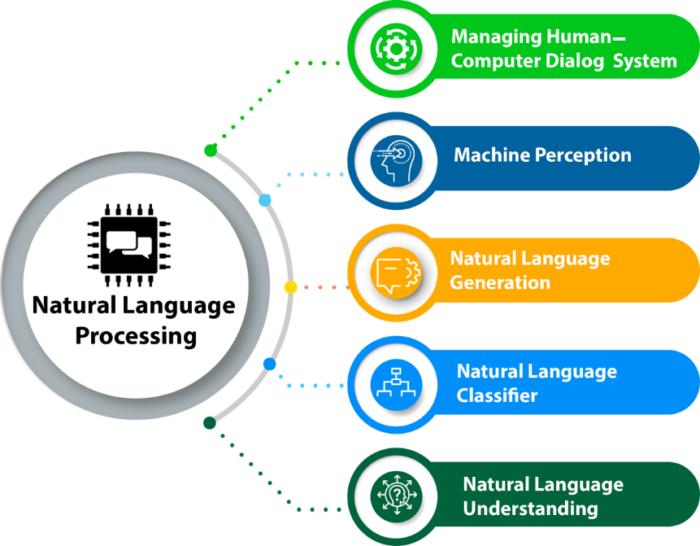As we step into 2025, one of the most transformative technologies reshaping the landscape of business automation is Natural Language Processing (NLP). NLP is a subfield of Artificial Intelligence (AI) that focuses on the interaction between computers and human language. By enabling machines to understand, interpret, and generate human language, NLP is playing a pivotal role in enhancing automation processes across various industries. In this article, we will explore how NLP is driving smarter automation and revolutionizing business operations in 2025, touching on its applications, benefits, and future potential.
The increasing need for businesses to adapt to an ever-evolving digital landscape is pushing them to adopt cutting-edge technologies. AI and automation have become key enablers of this transformation, but integrating NLP into automation systems brings a whole new level of sophistication. With NLP, businesses can automate processes that require human-like understanding, such as customer service, content creation, sentiment analysis, and even decision-making. This opens up vast opportunities for organizations to streamline operations, improve customer experiences, and enhance overall efficiency.
At the core of NLP’s ability to enhance automation is its ability to understand and process vast amounts of unstructured data, primarily text. Whether it’s understanding customer inquiries, analyzing social media feedback, or automating content creation, NLP is transforming the way businesses operate in 2025. By incorporating NLP into their systems, companies can achieve smarter, more intuitive automation that can handle tasks that were once reliant on human intervention.
How NLP is Enhancing Automation Across Industries
Natural Language Processing is driving smarter automation across various industries by making interactions between machines and humans more intuitive. Here are some of the key areas where NLP is making a significant impact:

1. Revolutionizing Customer Support and Engagement
Customer service is one of the areas where NLP is having the most profound impact. Businesses are increasingly relying on AI-driven chatbots and virtual assistants to handle customer inquiries. However, these systems are evolving from simple question-and-answer bots to sophisticated conversational agents capable of understanding the context, tone, and intent behind customer queries.
In 2025, NLP-powered chatbots can handle complex requests, provide personalized recommendations, and resolve issues with minimal human intervention. For example, in e-commerce businesses, NLP can be used to automate customer support, helping customers find the right products based on their preferences and even answering specific product-related queries. With AI in business operations, companies can ensure that their customer service operations run 24/7, delivering seamless and efficient experiences.
By automating customer support through NLP, businesses can reduce wait times, improve customer satisfaction, and lower operational costs. This shift is particularly valuable for small business ideas and startups that may not have the resources to employ large customer support teams. NLP also facilitates the use of conversational AI for digital marketing, where companies can create personalized, automated experiences for their customers.
2. Automating Content Creation and Management
Content creation is another area where NLP is significantly enhancing automation. Generating high-quality content, whether for blogs, social media, or product descriptions, requires substantial effort, creativity, and time. NLP algorithms, however, can now write articles, summarize text, and even generate creative content that meets specific objectives.
In 2025, many companies are turning to NLP tools to automate content creation for various channels. NLP-driven content management systems can generate optimized articles based on keyword research, SEO strategies, and trending topics. For example, companies in e-commerce businesses can automate product descriptions, ensuring that they are always up to date and optimized for search engines. Moreover, content marketing strategies can be automated, ensuring that relevant and timely content reaches the right audience at the right time.
NLP can also be used for content summarization, allowing businesses to condense large volumes of information into digestible formats. For example, an organization can automatically generate summaries of lengthy research reports, helping employees quickly gain insights without spending hours reading the entire document. This enhances productivity and accelerates decision-making processes across the organization.
3. Improving Sentiment Analysis and Social Media Monitoring
One of the most powerful applications of NLP is sentiment analysis. In 2025, businesses are increasingly using NLP-powered tools to analyze customer feedback, reviews, and social media interactions in real time. NLP algorithms can detect the sentiment behind customer comments, whether positive, negative, or neutral, and use this information to adjust strategies accordingly.
For example, a company in the health and wellness startups sector may use sentiment analysis to track how customers feel about their products or services. By analyzing sentiment data from social media, reviews, and surveys, businesses can gain insights into customer satisfaction levels, identify potential issues, and respond proactively. This helps organizations adjust their marketing campaigns, customer service strategies, and even product development based on real-time feedback.
In addition to sentiment analysis, NLP tools can be used for social media monitoring, enabling businesses to track mentions of their brand and relevant keywords across platforms. This automation allows businesses to stay on top of trends, manage their reputation, and quickly address customer concerns, all without manual intervention.
4. Enhancing Knowledge Management and Document Automation
NLP is also revolutionizing the way businesses manage documents and knowledge. For organizations dealing with large volumes of documents, contracts, and legal paperwork, NLP can automate the extraction of key information from these texts, significantly reducing the time spent on manual document review.
By automating document management processes using NLP, businesses can ensure that important data—such as dates, clauses, and key terms—are easily identified and organized. This can be particularly valuable for sustainable businesses that need to manage complex compliance documents related to environmental regulations. NLP can also be used to automate the creation of reports, such as summarizing quarterly results or analyzing customer trends, which saves time and ensures accuracy.
5. Optimizing Search and Data Retrieval
NLP plays a crucial role in improving search functionality within organizations. Whether it’s an internal knowledge base, an e-commerce platform, or a customer support portal, NLP can optimize search engines to deliver more accurate and relevant results based on user queries. By understanding the context and intent behind a search, NLP algorithms can provide more intuitive search experiences.
In the context of startup ideas, businesses can utilize NLP to develop smarter search engines that can better understand natural language queries from customers or clients. This is particularly important for businesses in industries like digital services, where customers may not always know the exact terms or keywords they need to find the information they are looking for. With NLP, businesses can ensure that their search engines understand the nuances of language and provide relevant answers to user queries.
NLP also enables better data retrieval, allowing businesses to access the information they need more quickly. By automatically categorizing and indexing documents, emails, and other textual data, organizations can ensure that employees can find the information they need without sifting through irrelevant files.
The Future of NLP and Automation in Business
Looking forward to 2025 and beyond, the integration of NLP into business automation is expected to expand significantly. With advances in deep learning, neural networks, and the availability of vast amounts of data, NLP systems will continue to evolve and become even more sophisticated.
In the future, we can expect NLP to become even more integrated into various business processes, from HR and recruitment to supply chain management and compliance. For instance, machine learning models that power NLP will become better at understanding multiple languages, dialects, and cultural contexts, making global automation even more feasible. As businesses scale and grow, the demand for NLP tools will continue to rise, providing more opportunities for tech-based startups and e-commerce innovations to leverage this technology for smarter business operations.
Moreover, businesses will start to use AI technologies tools to create even more personalized experiences for customers. By utilizing NLP to automate tasks such as product recommendations, content delivery, and customer feedback analysis, companies can increase customer satisfaction and loyalty, which is crucial in today’s competitive market.
Conclusion
As we move into 2025, NLP is undoubtedly one of the most important technologies for smarter automation in business. From enhancing customer support and content creation to improving sentiment analysis and document management, NLP is transforming the way businesses operate. By integrating NLP into their automation strategies, organizations can streamline operations, improve decision-making, and offer more personalized experiences to their customers.
The future of NLP in automation is bright, and businesses that leverage this powerful technology will be well-positioned to thrive in the digital age. Whether you’re a startup or a large enterprise, embracing NLP for smarter automation can drive growth, increase efficiency, and give you a competitive edge in the market.

